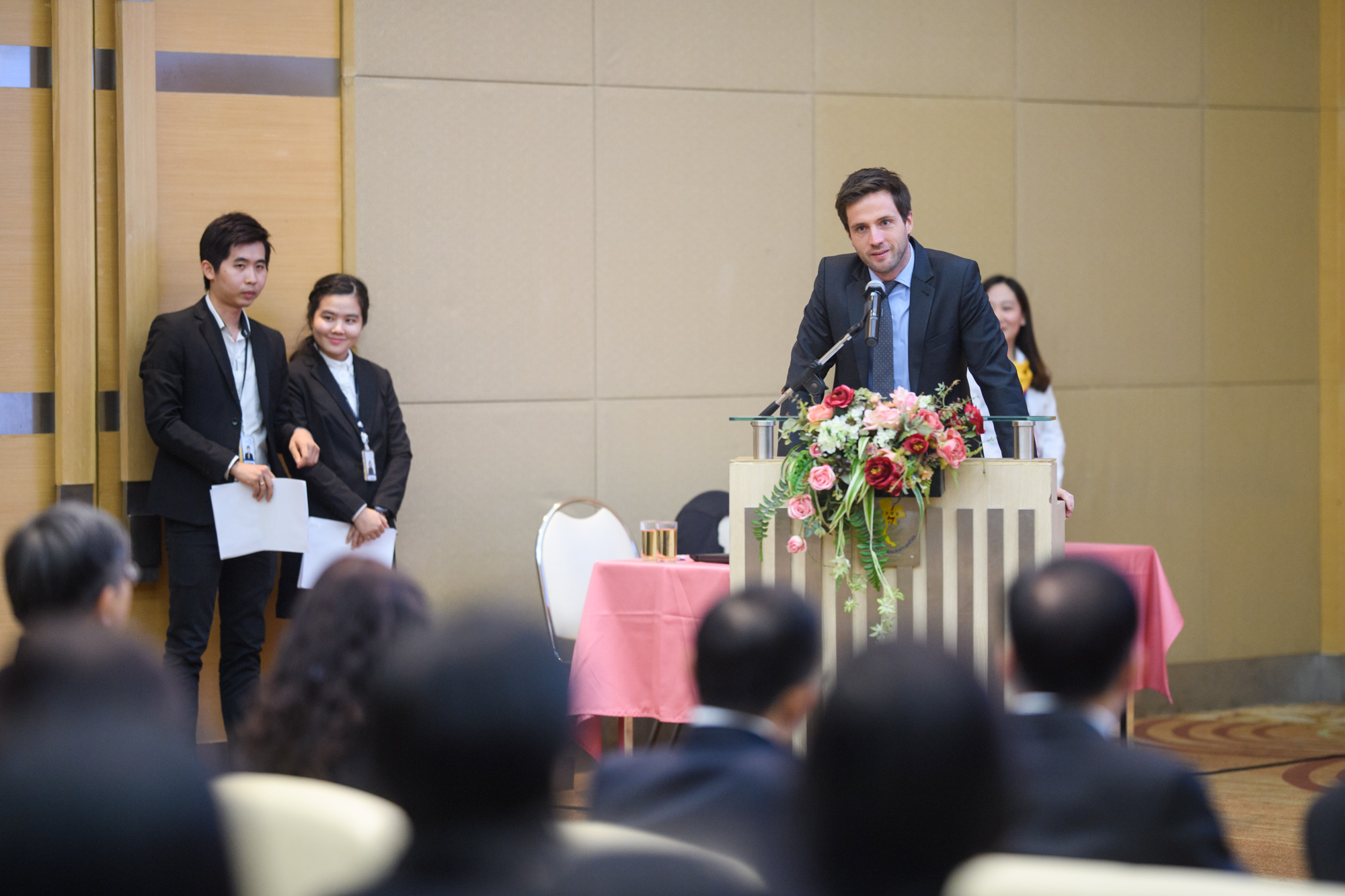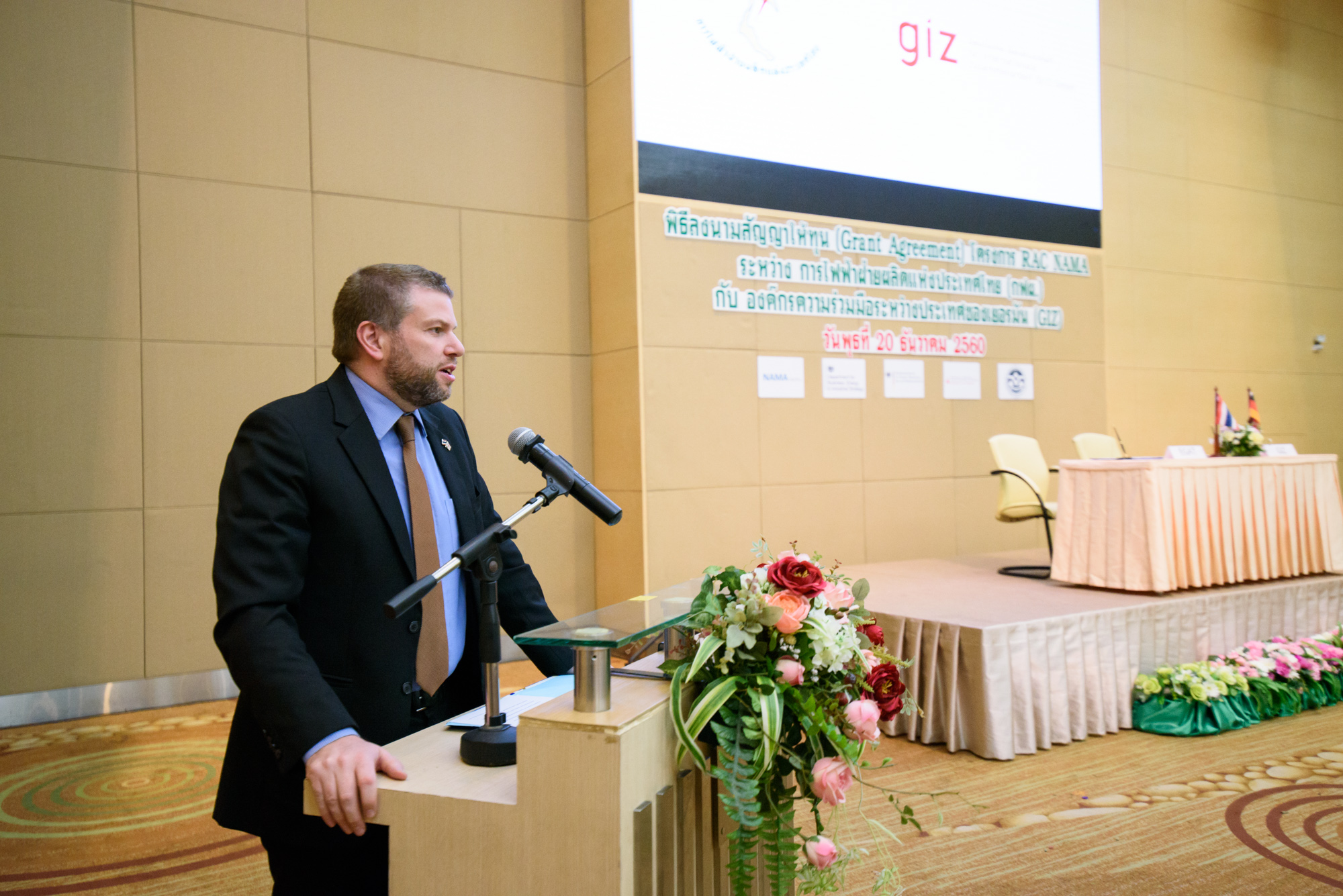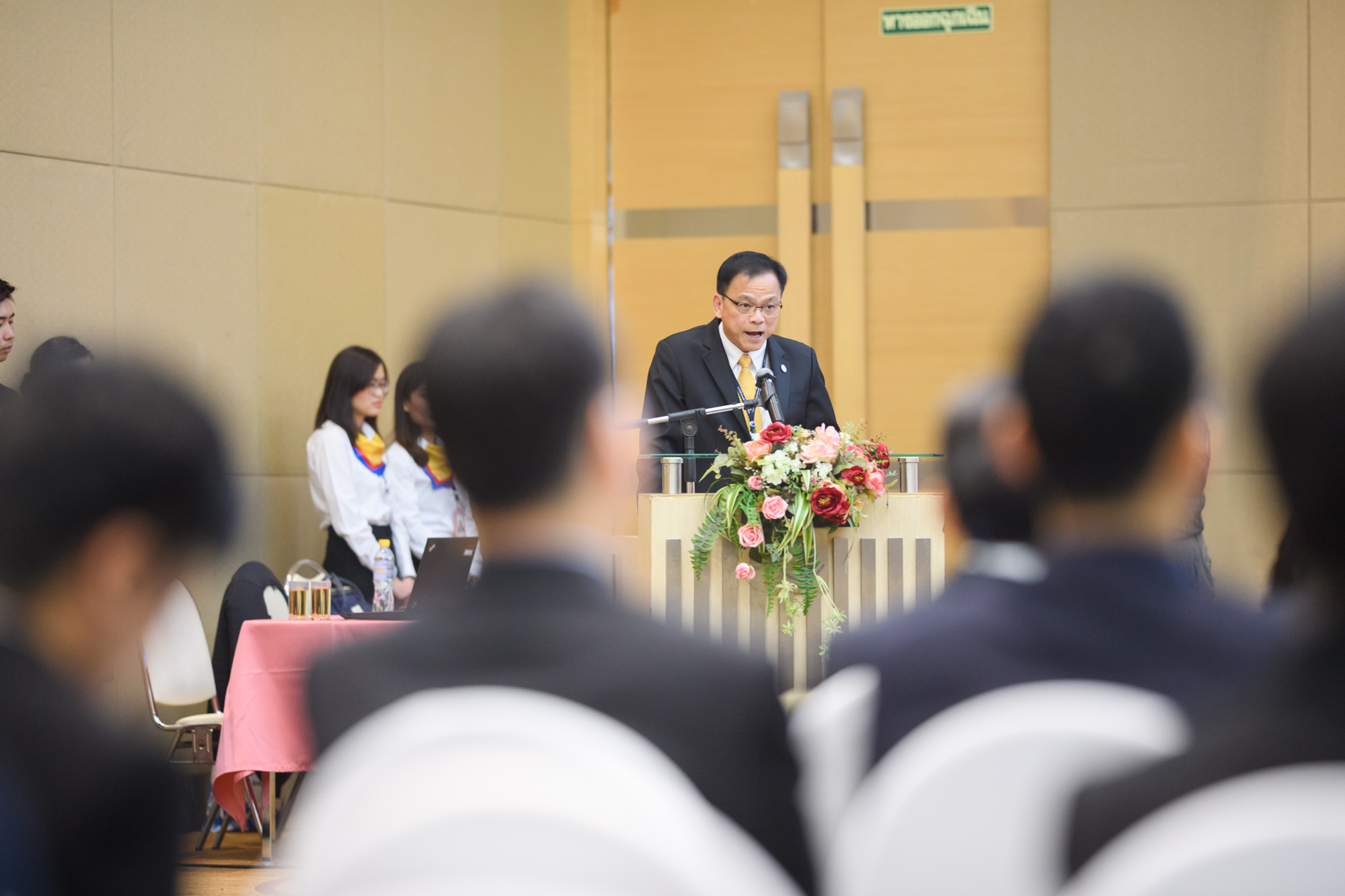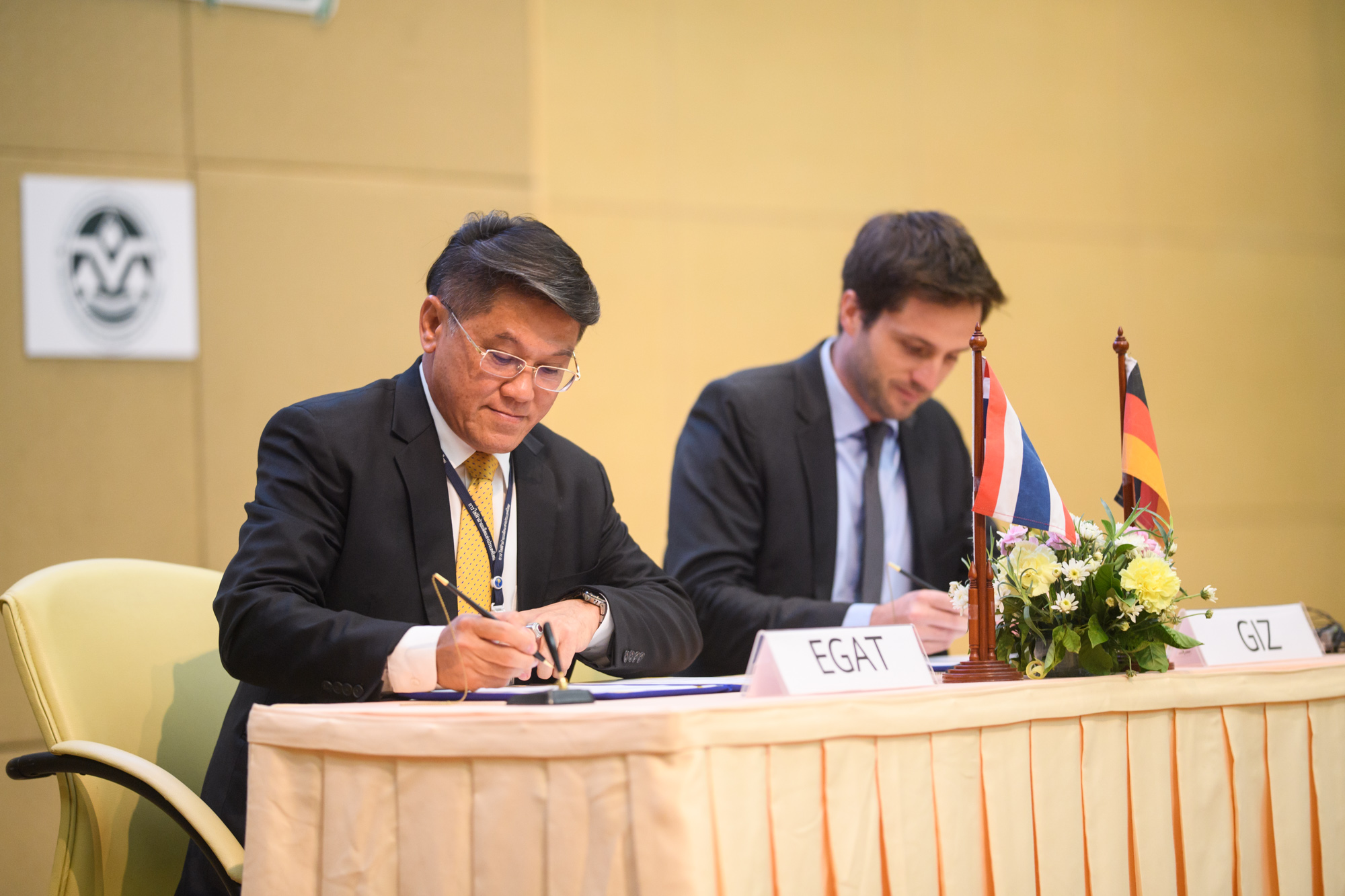The Electricity Generating Authority of Thailand (EGAT) and GIZ signed a Grant Agreement at the end of 2017 under the Thailand Refrigeration and Air Conditioning Nationally Appropriate Mitigation Actions (RAC NAMA) project to provide financial support for the green transformation of the Thai cooling sector.
As part of the RAC NAMA project, funding in the amount of EUR 8.3 million (approximately THB 320 million) is specifically provided to set up the “RAC NAMA Fund”. EGAT will be responsible for managing the fund and for implementing financial support mechanisms to promote highly energy-efficient and climate-friendly cooling technologies.
Mr. Kodshayut Boriboonchatuporn, Deputy Governor—Powerplant Development of EGAT, said: “We are most honored to be the national fund recipient on behalf of the Thai government to manage the RAC NAMA Fund. Whilst EGAT’s main policy is to generate electricity to meet the needs of the population we serve, we are determined to promote sustainable development and environmental preservation. The RAC NAMA project will not only help to support Thailand in energy efficiency in accordance with the country’s Energy Efficiency Plan but will also assist the country in achieving the pledged GHG mitigation targets of 7-20% by 2020 and 20-25% by 2030 against BAU scenarios.”
Mr. Tim Mahler, Project Director of RAC NAMA, GIZ Thailand elaborated on the key objectives of the fund, saying: “A RAC NAMA Fund budget of EUR 8.3 Million has been approved for developing financial support mechanisms, in this case as sub-grant and revolving schemes supporting production-line conversion and market introduction of climate-friendly and energy-efficient cooling equipment using natural refrigerants.The fund addresses the investment needs of producers, consumers, SME end-users and also supports the service sector in the form of training and testing facilities.”
By bringing international climate finance to Thailand, the pioneering RAC NAMA fund should be considered a great opportunity in helping to increase incentives and alternatives for the RAC sector in Thailand as it moves towards green cooling technology and in supporting Thai industry to stay competitive on the global market.
Another key issue that generated the implementation of Thailand’s RAC NAMA fund involves the potential for knowledge transfer and learning experiences with climate finance, not only domestically but globally, in transitioning to a low-carbon economy.




